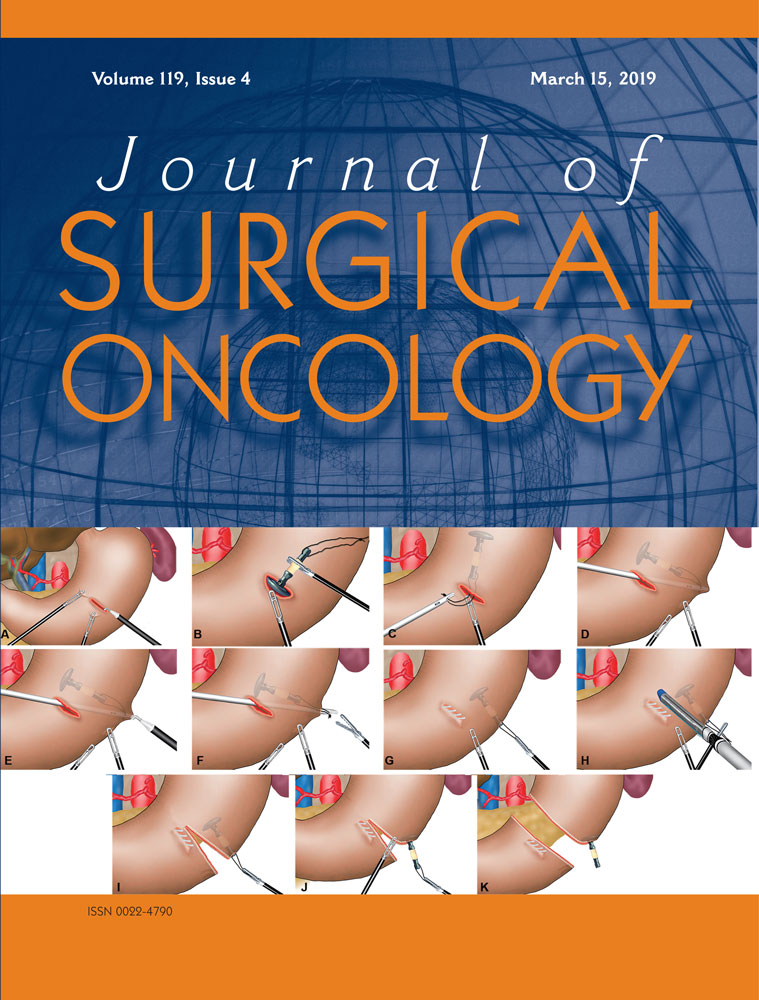Improved survival in rectal cancer patients who are treated with long-course versus short-course neoadjuvant radiotherapy: A propensity-matched analysis of the NCDB
This manuscript was presented as a poster at the 2018 ASCRS Annual Scientific Meeting, May 19 to 23, 2018, in Nashville, TN.
Abstract
Background
Randomized controlled trials have demonstrated comparable survival outcomes for short-course (SCRT) and long-course neoadjuvant radiotherapy (LCRT) in patients with rectal cancer.
Methods
Using the National Cancer Data Base (2004-2015), a propensity score was used to match 188 patients with rectal cancer receiving SCRT to 376 patients receiving LCRT. Perioperative, oncologic, and survival outcomes were compared.
Results
Patient and clinical tumor characteristics were similar between groups. Patients in the LCRT were more likely to undergo surgery (91% vs 85%; P = 0.03). The LCRT group were more likely to have tumor (T) (56% vs 43%) and nodal (N) (25% vs 19%) downstaging, and a complete pathological response (15% vs 6%) compared with the SCRT group (all P < 0.05). Length of stay (6 vs 8 days), 30-day (1% vs 5%) mortality, and 90-day mortality (1% vs 10%) were significantly lower in the LCRT group (all P < 0.05). After adjusting for patient and tumor-related characteristics, LCRT was associated with a 50% reduction in the risk of mortality compared with SCRT (hazard ratios, 0.50; 95% confidence interval, 0.35-0.70).
Conclusions
In this analysis, LCRT was superior to SCRT in terms of tumor response to neoadjuvant therapy, perioperative mortality, and overall survival. These findings provide evidence for the use of LCRT when neoadjuvant therapy is indicated.
CONFLICTS OF INTEREST
The authors declare that there are no conflicts of interest.




